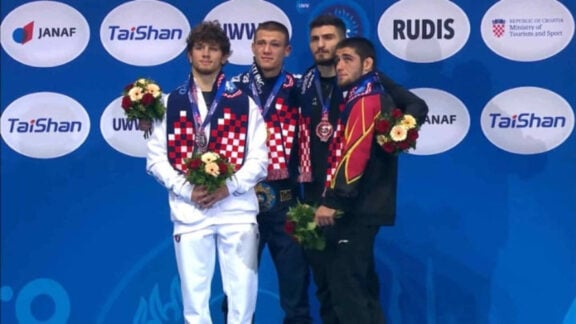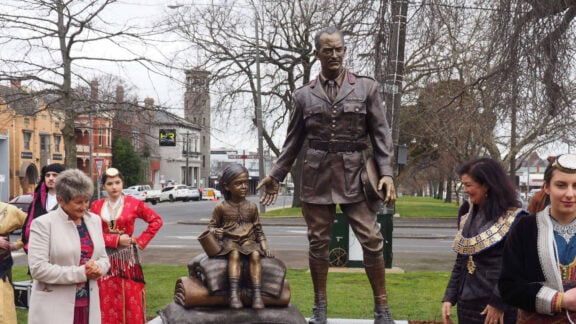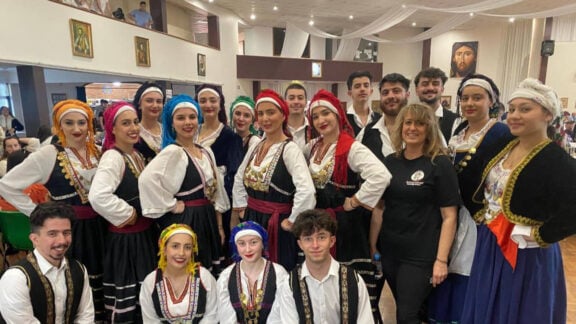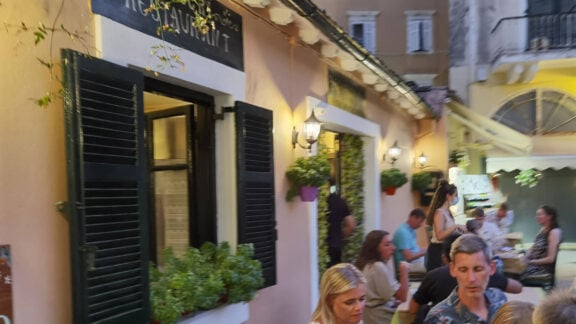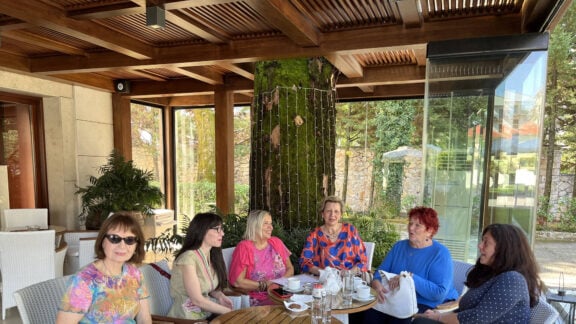Having recently spent time in Germany, I have come to further appreciate the greatness of Australia, in all its multicultural glory.
Anyone who has lived in Australia naturally has some understanding of how Australian society works, how it has been constructed and enhanced over time by continuous waves of migrants. Modern Australia is indeed a migrant nation. A melting-pot of ideas, beliefs, traditions and heritage.
As a result we have learnt as a society to tolerate, accept and appreciate cultural diversity and difference. Sure, it wasn’t always easy and there are occasional tensions, but on the whole Australia is a coherent, peaceful and tolerant place.
On the other side of the world, Germany is beginning to simmer once again with right-wing sentiment. Not the Jews this time, but the Turks. I’m not suggesting that WWIII is about to break out and result in another holocaust, but the rhetoric is there, plain to see, by simply engaging a German on the theme.
What Germans are up in arms about is what they consider an attack on their culture and their w ay of life by Turkish immigrants, who they claim are refusing to learn German and integrate.
A 2010 study by the Friedrich Ebert Foundation in Germany found that more than 30 percent of Germans believed the country was “overrun by foreigners” and that the majority of them had come to take advantage of the country’s generous social benefits.
Around the same time the BBC reported that while going to great lengths to reassure migrants that they are welcome in Germany, Chancellor Angela Merkel said, “the approach [to build] a multicultural [society] and to live side-by-side and to enjoy each other…has failed, utterly failed”.
Living in the shadow of the Second World War as they do, the Germans I spoke to were not yet willing to utter the ‘M’ word (Muslim) in the debate, though they clearly don’t consider other Europeans who, since the opening of EU borders, have flocked to Germany in pursuit of better living standards, an equal threat.
This seems, as all debates surrounding this alleged ‘clash of civilisations’ do, to be based in fear of the unknown.
Germans are afraid of ethnic clustering, lack of integration and a dilution of their values and way of life. Sound familiar? I wonder if they’re aware that German migrants to Australia did the same thing? After all, a significant number of Germans have settled in Australia.
What ought to sound more familiar is that as the Australian experience shows, integration and assimilation occur naturally across time. It is inconceivable that a third-generation Turk in Germany is any less German than a third-generation Greek, Chinese, Sudanese or Samoan in Australia is Australian.
I’m a second-generation Greek-Australian and I’m as ‘Aussie oi oi oi’ as anyone. Similarly, a second generation Turkish-German is going to grow up around other Germans, go to a German school and speak German as their first language.
Sitting in a Bavarian cafe last week I noted a Turkish-German mother speaking to her friend in Turkish and her toddler in German, an obvious attempt to ensure German becomes the boy’s first language.
The reason that Germans can’t see this, however, is that the Turks just keep coming. Where in Australia we have seen waves of different migrants from different places, Germans have seen growing numbers of Turks.
In 2010 there were an estimated 3.5 million people of Turkish origin living in Germany. Generation after generation of first-generation Turkish migrants are flocking there, clustering together, and giving off the appearance that they are refusing to integrate.
I believe this is a false perception. The reality is that Germany, along with many other European countries that became ‘feeder states’ for the migrant nations, including Australia, do not consider themselves migrant nations and therefore struggle to deal with the concept.
This difference in attitude is summed up by a simple disparity in the notion of the ‘citizen’. In many European countries, not least Germany and Greece, the ‘citizen’ is still bound up in an archaic notion of racial and cultural homogeneity.
In Australia, Canada, New Zealand, South Africa, Britain and the USA the ‘citizen’ is no longer linked to a cultural racial notion, irrespective of occurrences of racism.
Germany further compounds this problem by making it incredibly difficult for migrants – even the German-born children of migrants – to become citizens, but still has the collective audacity to demand their integration.
Well, which is it? How can a country possibly insist that a migrant learn its language and integrate into its way of life if it will not grant them citizenship by birth?
As a result there are entire generations of Turkish-Germans that are neither Turkish, nor German. They just are, and subsequently are nothing.
They’re like shadow-citizens, guest workers that never left. In Germany today there is a Kebab shop on every corner and a growing tide of anti-Turkish sentiment. Australia really is a bloody lucky country.


